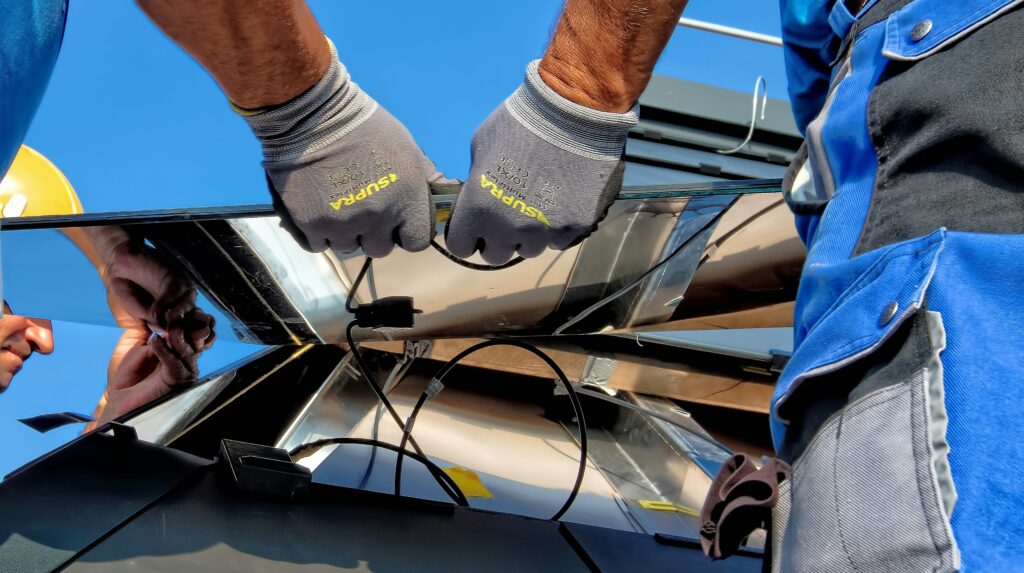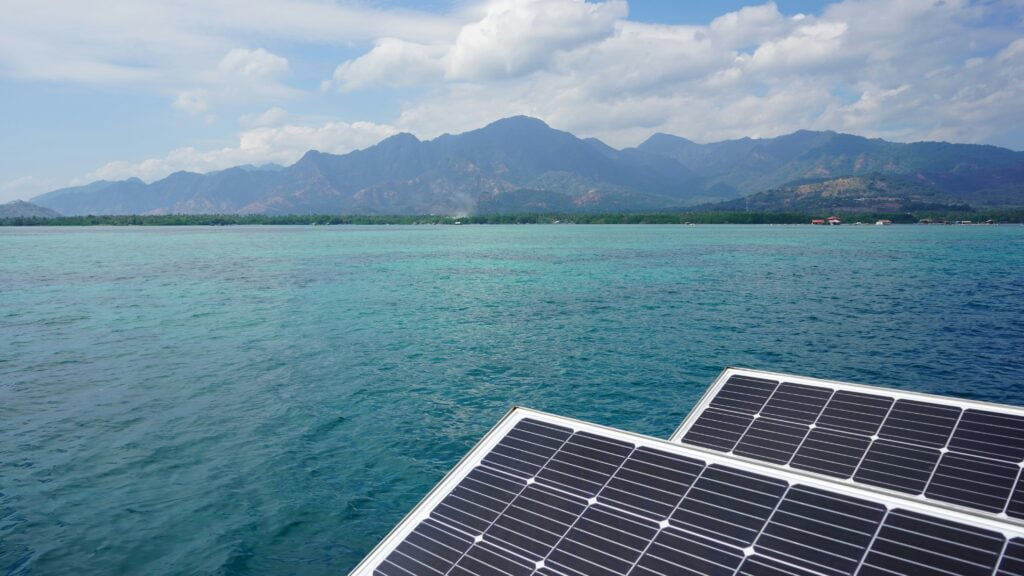RV owners increasingly embracing solar power for their off-grid adventures. Solar panels provide an efficient means to generate electricity without being dependent on campsites or traditional power sources – giving RV’s more freedom while meeting all their energy needs on the open road.
In this article, we’ll examine how RV solar panels–specifically 400-watt panels–are revolutionizing road trips by making them more energy-efficient, cost-effective and eco-friendly.
Table of Contents
Solar Panels Are Essential for Off-Grid RV Solar Panels
Installing panels on your RV gives you the freedom to travel anywhere without being restricted by finding power sources. Here’s why solar should be part of your next journey:

Energy independence:
No need for campsite hookups or fuel-powered generators. Reduced carbon footprint: Solar energy is clean, renewable energy that’s good for the environment. Cost savings: Over time using solar power reduces electricity and fuel costs significantly.
Quiet and low maintenance requirements:
Solar’s operate silently compared to noisy generators, and require minimal upkeep.
400-Watt Solar Panels Optimize Efficiency
400-watt panels offer the ideal balance between power output and space requirements, making them a fantastic option for RV owners seeking to power essential appliances without taking up too much roof space on their motorhome roof.
Benefits of 400-Watt Solar Panels:
optimizer power output:
This solar panel produces enough energy to run small appliances, lights and charge batteries efficiently. [beneficiar compact design: It fits snugly on most RV roofs without taking up valuable space.
Blusun Black Mono-facial PERC Solar Panels provide highly-efficient solar panel systems, capturing more light even under cloudy skies and offering maximum sunlight absorption rates.

Modern panels such as monocrystalline ones with PERC technology are engineered for maximum efficiency. That makes them perfect for RV applications:
Dual Cell PERC technology: Optimizing energy production by decreasing resistance within individual cells.
Higher Efficiency:
With better power output compared to older technologies. Durability: High-quality panels from Blusun offer long-term warranties and performance guarantees. When installing panels onto an RV.
Installing solar panels on an RV requires some careful considerations:
Size and Number of Panels: For basic power needs, one 400-watt solar panel typically suffices. Larger systems might require additional panels.
Battery Storage:
Make sure that a reliable battery is available to store any excess solar energy generated during the day.
Position:
Install panels where they will receive maximum sunlight exposure to boost performance and efficiency, increasing overall efficiency and effectiveness. Cost Considerations and Solar Incentives

While solar panel costs depend on several variables like brand and installation cost, there are ways to cut expenses:
Average Cost:
The cost of installing a 400W solar panel kit typically ranges from $500 to $800 depending on its manufacturer and country of purchase.
Solar Tax Credits or Rebates:
Some countries, like the US, provide tax credits or rebates which help offset initial installation costs for solar energy solutions.
Long-Term Savings:
In time, reduced fuel or campsite hookup costs can lead to significant savings on energy bills. Maintenance Tips for Long-Lasting Solar Panels

To ensure that your panels continue working efficiently for years ahead, follow these maintenance tips:
Maintain Cleanliness:
Dust and debris build-up can have an adverse impact on panel efficiency; make sure your panels are regularly cleaned. Examine Connections: When inspecting wiring connections to make sure everything is operating smoothly. Track Power Output: Utilize a monitoring system to track how much energy your panels are producing so you can adjust as necessary.
Conclusion
By installing 400-watt solar plates onto your RV, you can experience off-grid travel without compromising comfort or convenience. Solar power is quiet, eco-friendly and reliable – an indispensable addition to modern RV setups. So take advantage of solar energy’s benefits for your next adventure and witness its promise as the future of road trips!
FAQ’s:
Q1. How many panels do I need for my RV?
A single 400-watt solar panel is usually sufficient to cover basic energy needs, but you may require additional panels for higher power consumption.
Q2. Can solar panels fully power an RV?
Yes, solar panels can power many RV appliances, but for full independence, you’ll need a good battery storage system to store energy for use when sunlight is not available.
Q3. Are there any tax benefits for installing panels on RVs?
In the United States, you may be eligible for the federal solar tax credit, which can reduce the upfront cost of your solar installation.
Q4. How long do solar panels last on an RV?
High-quality solar panels, like Blusun’s Mono-facial PERC, often come with a warranty of up to 25 years, ensuring long-term durability.
Q5. What happens if it’s cloudy or rainy?
Solar panels still generate energy on cloudy days, though at a lower efficiency. A reliable battery ensures you have stored energy to use when sunlight is limited.